
West may punish Myanmar military over Rohingya crisis
The European Union and the United States are considering targeted sanctions against Myanmar military leaders over an offensive that has driven more than 500,000 Rohingya Muslims out of the country, officials familiar with the discussions said.
Interviews with more than a dozen diplomats and government officials based in Washington, Yangon and Europe revealed that punitive measures aimed specifically at top generals were among a range of options being discussed in response to the crisis.
Nothing has been decided yet, the sources said. There are also discussions about increasing aid for violence-ravaged Rakhine state.
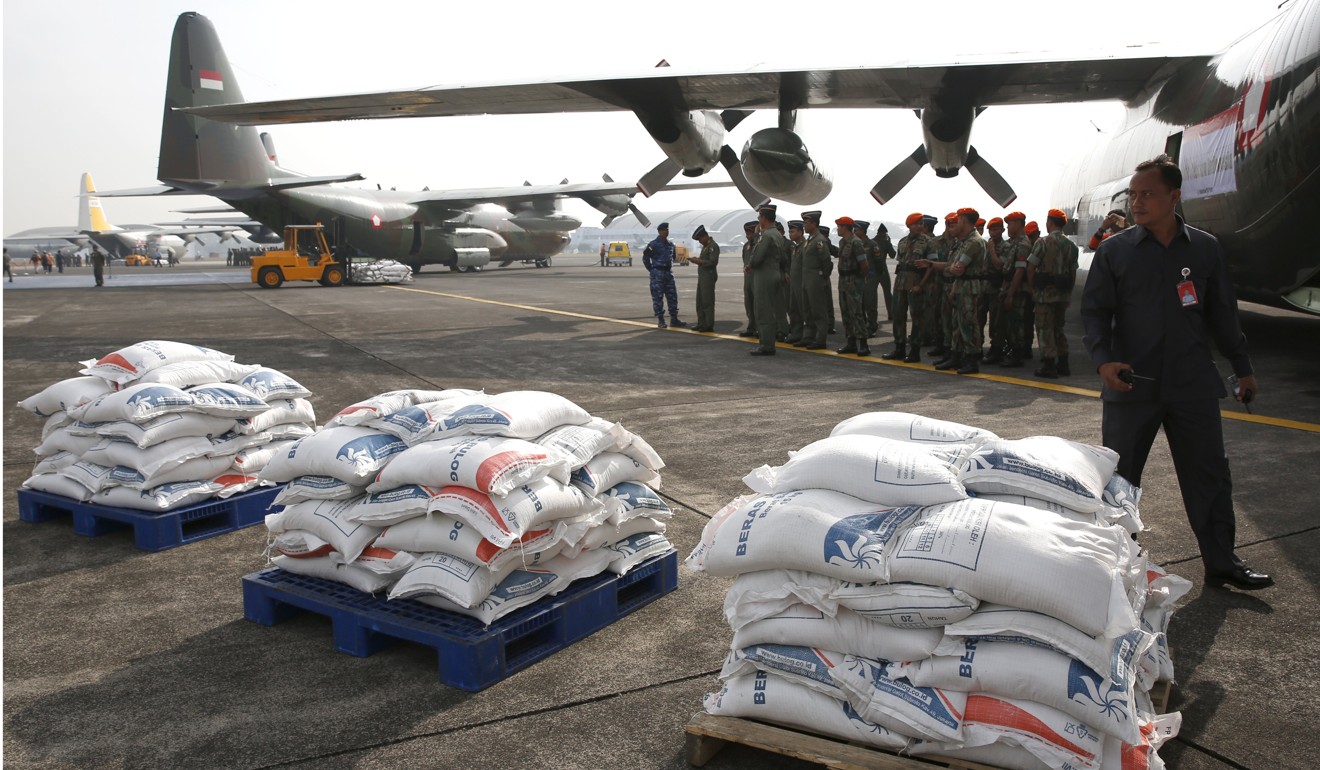
The discussion of sanctions – not even on the table a month ago – shows how the dramatic exodus of Rohingya Muslims from Myanmar is putting pressure on Western policymakers to take action.
Much of the outcry overseas has focused on Nobel laureate and Myanmar’s de facto leader Aung San Suu Kyi, who does not control the military but appears to back its campaign.
The EU Foreign Ministers Council will discuss Myanmar on October 16, although officials do not expect any move on sanctions that soon. Danish minister for development cooperation, Ulla Tornaes, said Copenhagen has been working to get the crisis on the agenda, “with the wish to put further pressure on the military”.
Two Washington-based US officials with knowledge of the Trump administration’s Myanmar deliberations said targeted sanctions against commander-in-chief Min Aung Hlaing and several other generals, as well as leaders of ethnic Rakhine Buddhist militias accused of torching Rohingya villages, were being considered.
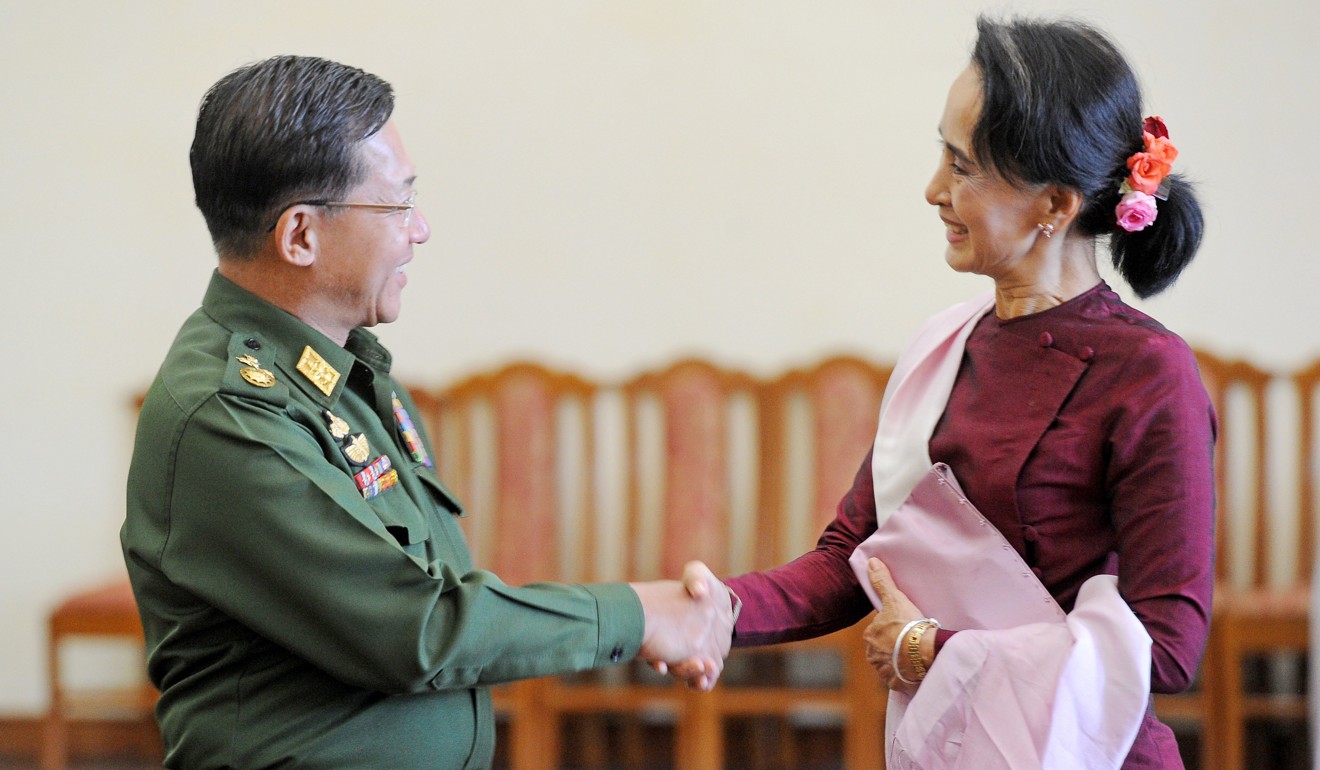
The United Nations is pressing for increased humanitarian access to other parts of Rakhine, where hundreds of thousands of Rohingya remain. How Myanmar responds to calls for increased aid, the investigation of alleged atrocities or repatriation of refugees would be a key consideration in deciding what action to take, US and EU diplomats in Myanmar said.
“We can pile political pressure, look into financing we have in Myanmar. We have humanitarian aid, as well as development aid ... the European Commission won’t invest in the development of Myanmar if the conditions, including security, are not there,” said a Brussels-based EU diplomat who follows Myanmar. “There is also the arms trade embargo and we discuss regularly whether we should reward the reforms in Myanmar and look at gradual easing of that, or the opposite.”
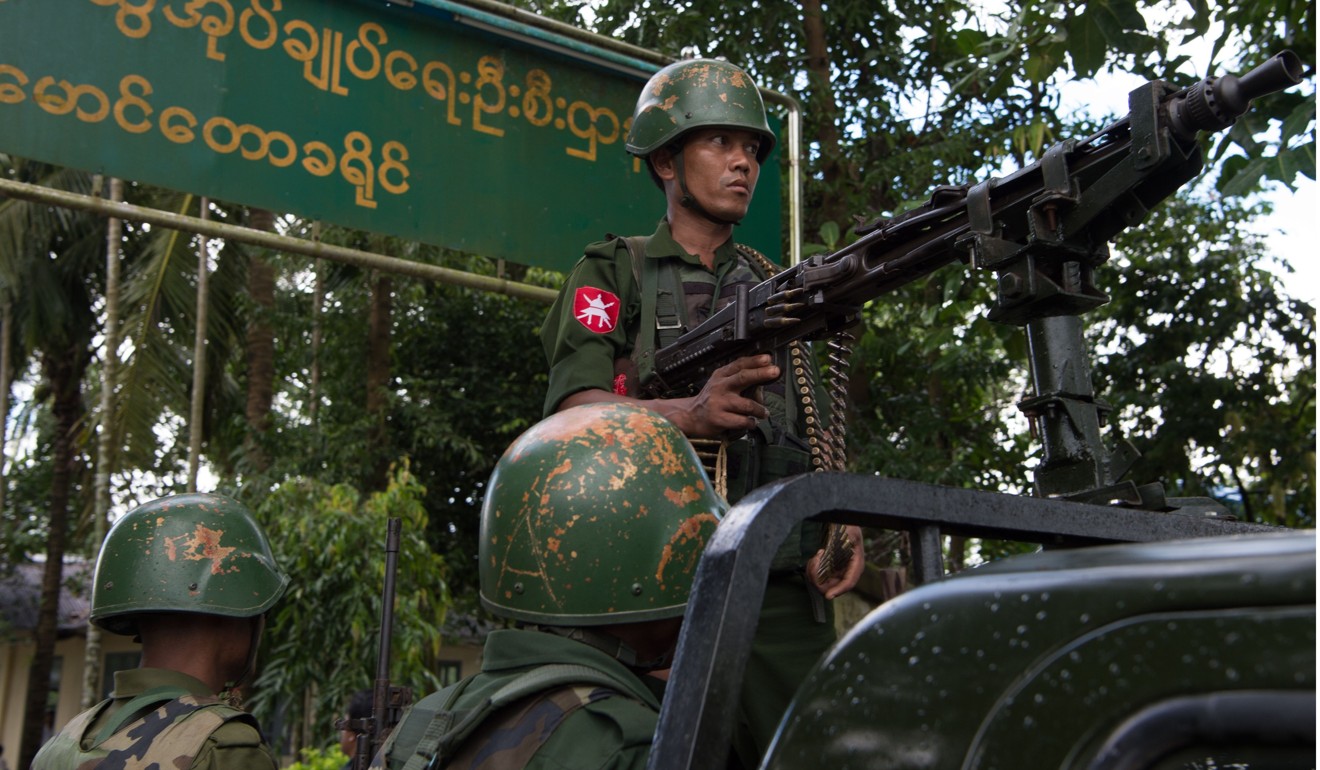
EU economic sanctions on Myanmar were lifted after the army stepped back from direct rule of the country in 2012, beginning the democratic transition that brought Suu Kyi’s party to power last year, but an arms embargo in force since the 1990s remains. The US removed most sanctions on Myanmar last autumn. It too has kept an arms embargo in place.
One Washington-based US official said Washington hoped to have a plan of action on Myanmar in place by the time President Donald Trump travels to Asia for a series of summits in the first half of November.
The White House declined to comment on internal deliberations on the Rohingya crisis.
In another sign of pressure building on Myanmar, New York-based diplomats said the Organisation of Islamic Cooperation (OIC) in the UN General Assembly was pushing for a human rights resolution on the country.
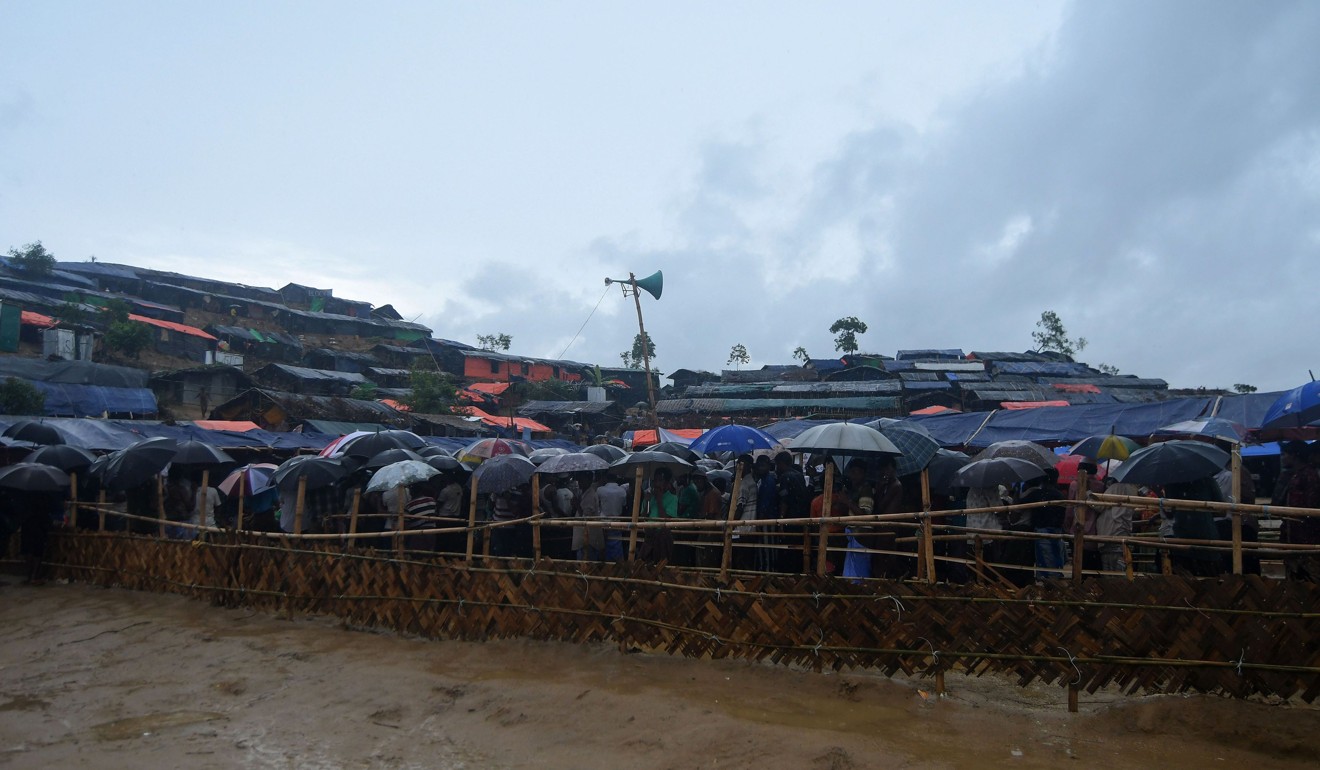
Last year the EU announced that for the first time in 15 years it would not introduce a resolution at the General Assembly’s Third Committee, which focuses on human rights, condemning Myanmar’s record – rewarding it for progress.
The European bloc could revive the resolution in the current session, taking on board the OIC draft and broadening it out beyond the Rohingya crisis, one diplomat in New York said.
Diplomats said some members of the UN Security Council were exploring whether the 15-member body could agree a formal statement, or even a resolution, calling for an end to the violence, full access for aid and the safe return of refugees.
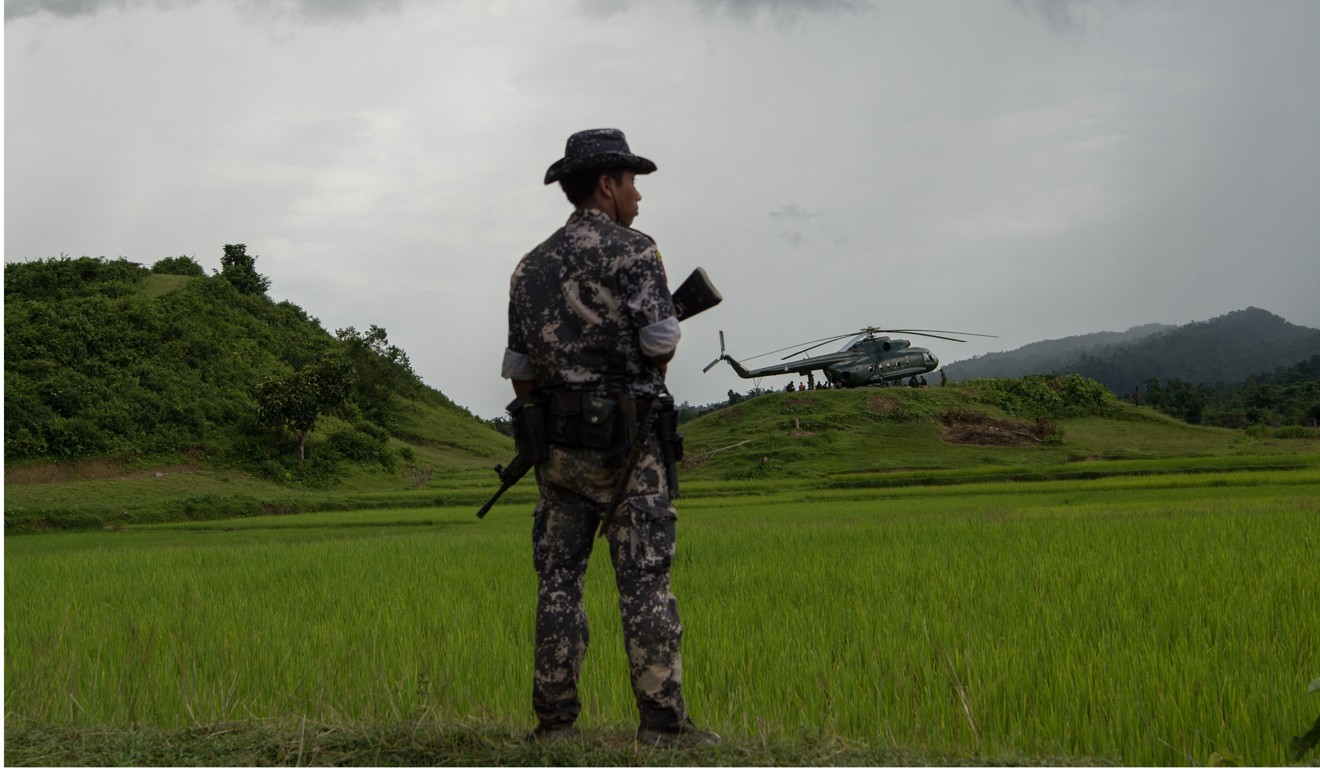
Myanmar’s relations with the UN have grown increasingly testy since the discovery of World Food Programme-branded biscuits at a suspected militant camp in July prompted the government to accuse the UN agency of supporting the insurgents, forcing it to shut down its operations in Rakhine.
Myanmar is stalling on accepting a plan by the UN to upgrade its country head to the more powerful rank of assistant secretary general (ASG) when its current top official, who is expected to be rotated, is replaced.
Thaung Tun, Suu Kyi’s national security adviser, told Reuters that the UN “must treat us equally”.
“We’ll be fine with anybody if all member states have an ASG assigned. Not just us,” he said.

